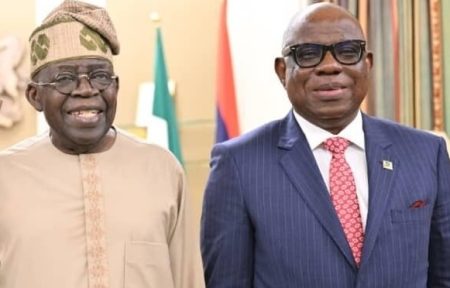
24 January 2015, Lagos – Industry stakeholders have predicted that the devaluation of the Naira will favour businesses in the non-oil export sector as well as manufacturers that source their raw materials locally rather than from markets outside Nigeria.
This, they say, was in contrast to the popular assumption that devaluation does all harm and no good, noting that the devaluation, which was recently sanctioned by the Central Bank of Nigeria, will make exporters of non-oil export products have more monetary value for their products while also bringing more dollars to the Nigerian economy. They also say that manufacturers that source raw materials from abroad will likely be the real losers as they will have to spend more naira to get a dollar.
For instance, President, Lagos Chamber of Commerce and Industry (LCCI), Remi Bello, said in an economic review that, “The exchange rate depreciation offers an advantage to exporters of non oil products. The naira value of their export proceeds has gone up considerably. This will improve returns on non-oil exports.”
According to Bello, the current exchange rate condition offers some advantages to industries with high local value addition as it makes them more competitive than their foreign or import dependent counterparts.
“The current situation is therefore a good opportunity to encourage industries and investors to look inwards for products and services that are hitherto imported,” he said.
Though analysts say devaluation would favour non-oil exports sector, analysis has shown that the sector is still relatively weak, which was why stakeholders in the non-oil export segment of the economy have continued to lament the country’s poor performance in the non-oil export segment at the international market, describing it as deserving of emergency response from the government.
For instance, Manufacturers’ Association of Nigeria Export Promotion Group (MANEG) described the growing deficit in the nation’s non-oil export as scandalous, saying that the Federal Government needs to step up its game.
MANEG chairman, Mr. Tunde Oyelola, in a statement tagged: ‘Way Forward on Non-Oil Export’, urged the government to take concrete measures aimed at turning the tide in the sector.
The group had in a comparative analysis of the performance of the non-oil export from January – June 2013, observed that non-oil exports for the period stood at about 1.52 billion US dollars; out of which, commodity exports was about 1.23 billion US dollars (81% of total non-oil exports), while manufacturing exports was 0.285 billion US dollars (19% of total non-oil exports).
The group noted that considering the importance of the manufacturing sector to the Nigerian economy, especially its contribution towards job creation, it was not satisfied with the performance of manufacturing exports in particular and the total non-oil exports.
The group said government should support manufacturing exports in its Foreign Aid Policy by giving out made in Nigeria products rather than cash to countries that are getting Aid and Assistance from Nigeria.
This, it said, will benefit manufacturers, professional service providers and broaden the non-oil exports, adding that it will also create awareness for Nigeria products and services in those countries, strengthen the business relationship between the countries and Nigeria, and will help create positive image of the country.
Statistical analysis
According to the Nigerian Export Promotion Council (NEPC), total earnings from Nigeria’s non-oil exports in 2013 were $2.97. The calculation shows that this is equivalent to 0.6 percent of Nigeria’s $510 billion GDP.
Nigeria’s 2013 non-oil exports data show that cocoa and cocoa preparations make up 26 per cent of non-oil exports at the end of the year, while sheep, goat skins and leather make up 19 per cent. Others are sesame seeds (12%), aluminium (5%), rubber (5%), tobacco products (4%), cotton, yarns and fabrics (3%) and copper (3%).
This, the council noted is a far cry from Argentina, with a GDP of $488.2 billion, exporting motor vehicles and parts (12%); chemicals and related products (7%); crude oil and fuels (5%) and base metals and glassware (4%), explaining that the difference is that while Argentina’s non-oil exports are mainly finished products, Nigeria’s is majorly agricultural.
It also noted that Thailand with a GDP of $401 billion mainly exports manufactured goods (86% of total shipments), with electronics (14%), vehicles (13 %), machinery and equipment (7.5%) and foodstuffs (7.5%).
Chairman, Manufacturers Association of Nigeria Export Group, Tunde Oyelola, said: “This is why we are calling for packaging incentives and return of the Export Expansion Grant to drive the non-oil export sector.
Stakeholders also noted that despite that devaluation will drive industries that source more raw materials locally; there is still the need to develop this sector to reduce the level of importation of raw materials and capital flight.
Immediate past CEO of Lafarge WAPCO, Joe Hudson, said, “We will need to develop local raw materials. Gypsum is an example of one such raw material.”
Challenges
Operators in the non-oil export segment of the economy are of the opinion that unless some of the problems inhibiting the growth of the sector are addressed, it might be difficult to achieve reasonable achievements in the sub-sector.
For instance, Managing Director, Multi Trex Integrated Foods Plc, Mr. Dimeji Owofemi, said the provision of infrastructure would not only grow the sector but also address unemployment problems.
He lamented that most of the financial interventions by the government were not easily accessible by the exporters, calling on government to ensure proper funding of the sector by providing enabling policy that would make exporters to access the available loan.
Director, Plantation Industries Limited, Mr. Taiwo Ayoade, noted that power still remained the major challenge for processing and manufacturing companies in Nigeria, lamenting that the disparity between the cost of provision of energy by manufacturers in Nigeria, (using generator sets) and their Ghanaian counterparts (where electricity is relatively stable) is alarming.
Also director-general of the Association of Nigerian Exporters, (ANE), and member, Board of Trustees, Institute of Export of Nigeria, Prince Joseph Idiong, said that most of the challenges in the non-oil sector were man-made.
He said one of the challenges facing the development of the non oil sector was lack of political will by the government to operationalise the Dedicated Export Funding Incentives in the Export (Incentives and Miscellaneous Provisions) Act 65 of 1992.
The Act, according to the ANE director-general, provides for the levy of crude oil and other raw minerals to create a fund for non-oil export development.
Managing Director, Bende Export-Import Limited, Mr. Benjamin Kalu, lamented that Nigeria was ranked very low in the World Trade Organisation (WTO) ranking in terms of non-oil export, saying that the strategy to achieve the one million exporters target would involve an initiative, which he termed as train the trainers programme where new and existing exporters would be trained in order to help exporters access the international market.
According to him, the number of importers in the country outweighed the number of exporters saying that, his company is working out modalities to strike a balance between the number of exporters and importers in the country, also stressing the need to create an incentive for the export market in the country, noting that that this will go a long way to encourage new and existing exporters in the nation.
“We need to keep incentivising the export market and the Export Expansion Grant (EEG) has a huge role to play in this regard. The EEG should be more flexible and accessible. This is the only way to encourage small scale exporters,” he said, adding that exporters in the country are still faced with numerous challenges while exporting their goods into the European markets.
He decried government’s lack of attention to the non-oil sector saying that the company is yet to receive any active support from the government despite its quest to work in line with the ministry of agriculture’s transformation agenda in terms of agricultural export.
“The private sectors must come in to bridge the gap between the suppliers, importers and exporters in this country. The export market needs to be incentivised for exporters to be motivated,” he said.
Commendations
Meanwhile, some experts in the financial sector recently applauded the Central Bank of Nigeria’ (CBN) third quarter of last year’s economic report that non-oil exports soared to $2.64 billion in the review period, noting that if sustained, it would mark a watershed for Nigeria on the road to diversification of the economy.
Analysts at FBN Capital Limited, for instance, said the federal government’s decision to invest in sectors that create jobs the most in the economy would further enhance the country’s economic growth.
Commitment
President Goodluck Jonathan has severally reaffirmed his administration’s determination to do all within its powers to facilitate and encourage the rapid diversification of Nigeria’s economy.
For instance, while speaking recently with the outgoing Ambassador of the Czech Republic to Nigeria, Mr. Jaroslav Siro, President Jonathan said his administration was fully committed to moving the Nigerian economy away from dependence on crude oil exports by promoting the development of the country’s non-oil sectors.
According to a statement issued by the Presidential Spokesman Dr. Rueben Abati after the meeting with the Czech’s envoy, the President said that in keeping with this commitment, the Federal Government was actively exploring all avenues of boosting trade and economic relations with other countries in areas not related to the oil and gas sector.
“With current developments in the world, we are more interested in diversifying our economy, not in over-emphasizing oil and gas exports. Our intention is to move our country away from being a mono-product economy that depends primarily on oil exports. We are fully committed, therefore, to boosting non-oil trade relations with other nations,” he said.
Also, Minister of Trade and Investment, Dr. Olusegun Aganga said infrastructure and Trade facilitation need to be tackled so as to grow the non oil sector of the economy.
He said the country would begin to explore the emerging markets of Asia and the Far East in addition to the consolidation of existing markets, adding that attention would also be given to the quality and packaging of products for export.
The minister assured that government would ensure that money was not only made available but accessible to deserving exporters in the country, stressing that no nation could develop by being only a consumer nation without producing.
The minister lamented that the country still lagged behind in terms of non-oil export, noting that apart from low production capacity, non-oil export was still dominated by agricultural commodities.



